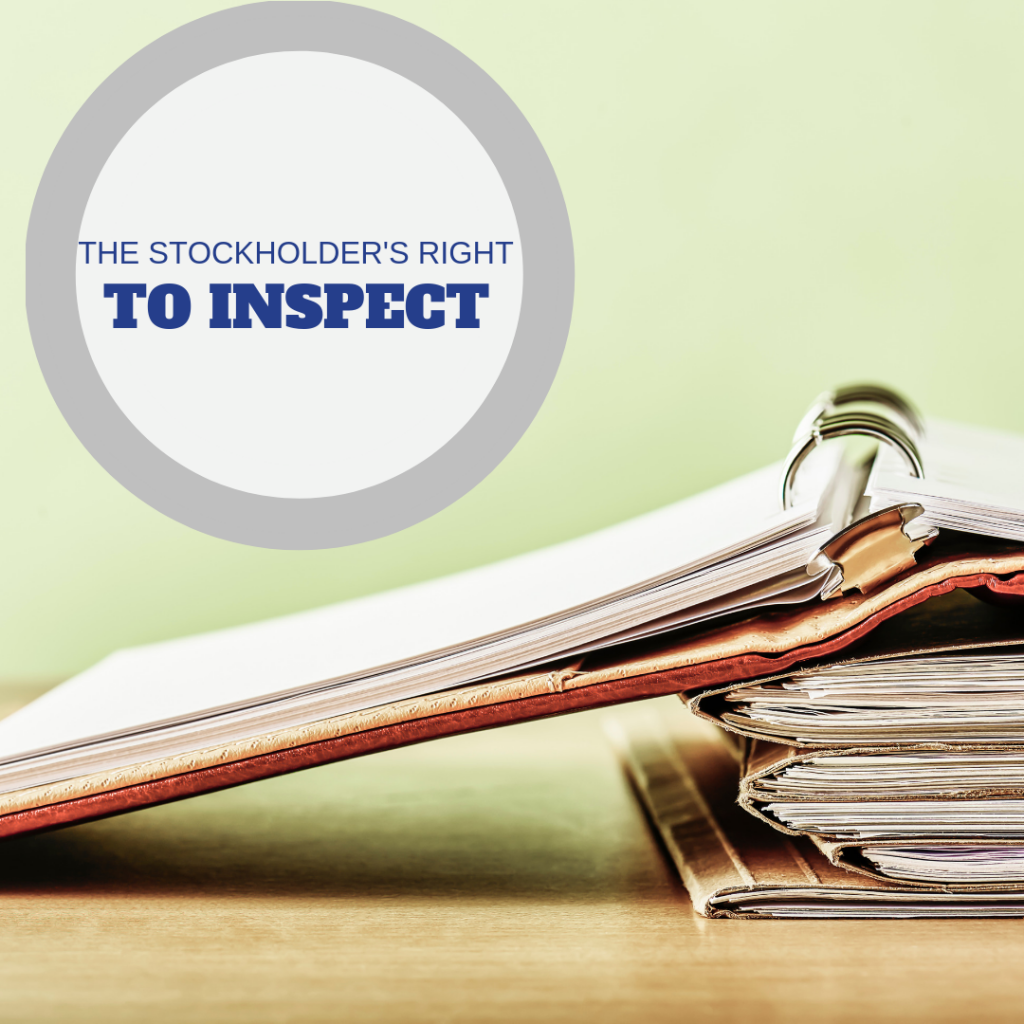
Published 28 June 2019, The Daily Tribune
One of our distinguishing abilities as human beings is free will or the ability to decide based on processed information. Without such information, we are rendered powerless to engage in effective decision-making.
This is the same principle behind corporate shareholders’ right to inspect corporate books and records. They have the right to know not only the financial condition of the corporation but also how the corporate affairs are being managed, so that if they find the conditions unsatisfactory, they may be able to take the necessary measures to protect their investment. After all, shareholders are the beneficial owners of a corporation and the ultimate stakeholders thereof. But given the power of information, this right to inspect is usually the first right resisted by the corporation where bitter litigation is a looming possibility or where the relationship of the parties has been strained to the point of loss of mutual trust.
In these situations, I have often advised that a shareholder must insist on his right to inspect.
This right is founded upon the Corporation Code which provides that every corporation shall keep and carefully preserve at its principal office a record of all business transactions and minutes of all meetings of stockholders or members, or of the board of directors or trustees. The records of all business transactions of the corporation and the minutes of any meetings shall be open to inspection by any director, trustee, stockholder or member of the corporation at reasonable hours on business days. He may also demand in writing for a copy of excerpts from said records or minutes, at his expense.
The records open for inspection include stock and transfer book, books of inventories and balances, business correspondence, letters, telegrams, contracts, memoranda, and the like. The scope is comprehensive because these records must be able to provide the stockholder crucial information on how his investment is being used and the actual financial condition of the corporation.
As it stands, even the “insignificant holding” of only .001% of a corporation’s stockholding qualifies the shareholder to inspect. The Corporation Code has granted to all stockholders the right to inspect the corporate books and records, and in so doing has not required any specific amount of interest for the exercise of the right to inspect. The right of the shareholder to inspect the books and records should not be made subject to the condition of a showing of any particular dispute or of proving any mismanagement or other occasion rendering an examination proper.
Among the purposes held to justify a demand for inspection are the following: (1) To ascertain the financial condition of the company or the propriety of dividends; (2) the value of the shares of stock for sale or investment; (3) whether there has been mismanagement; (4) in anticipation of shareholders’ meetings to obtain a mailing list of shareholders to solicit proxies or influence voting; (5) to obtain information in aid of litigation with the corporation or its officers as to corporate transactions.
Among the improper purposes which may justify denial of the right of inspection are: (1) obtaining of information as to business secrets or to aid a competitor; (2) to secure business “prospects” or investment or advertising lists; (3) to find technical defects in corporate transactions in order to bring “strike suits” for purposes of blackmail or extortion. Terelay Investment and Development Corporation vs Cecilia Teresita Yulo, GR. No. 160924, August 05, 2015. To be continued.
For comments and questions, please send an email to cabdo@divinalaw.com.

